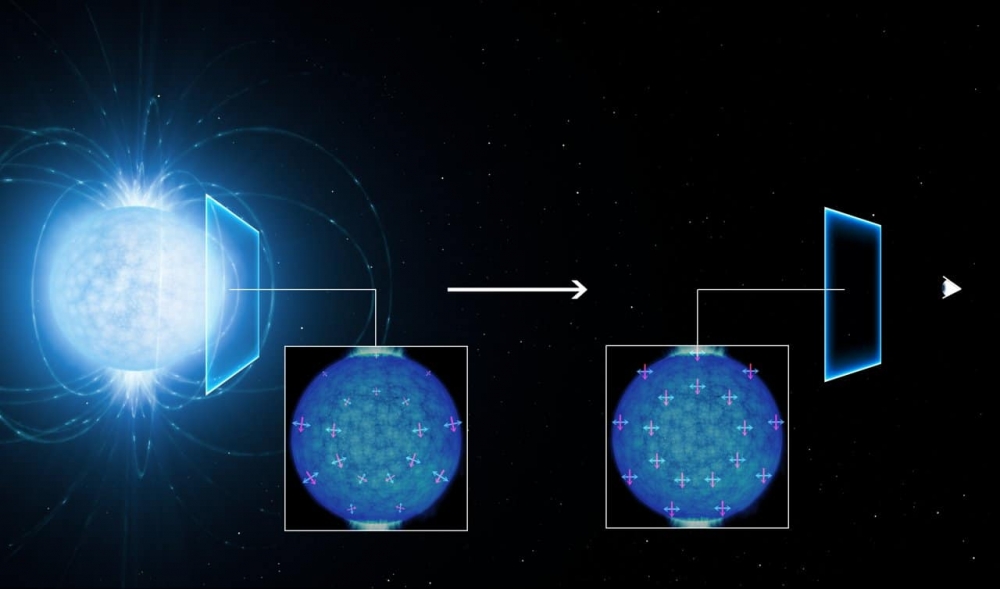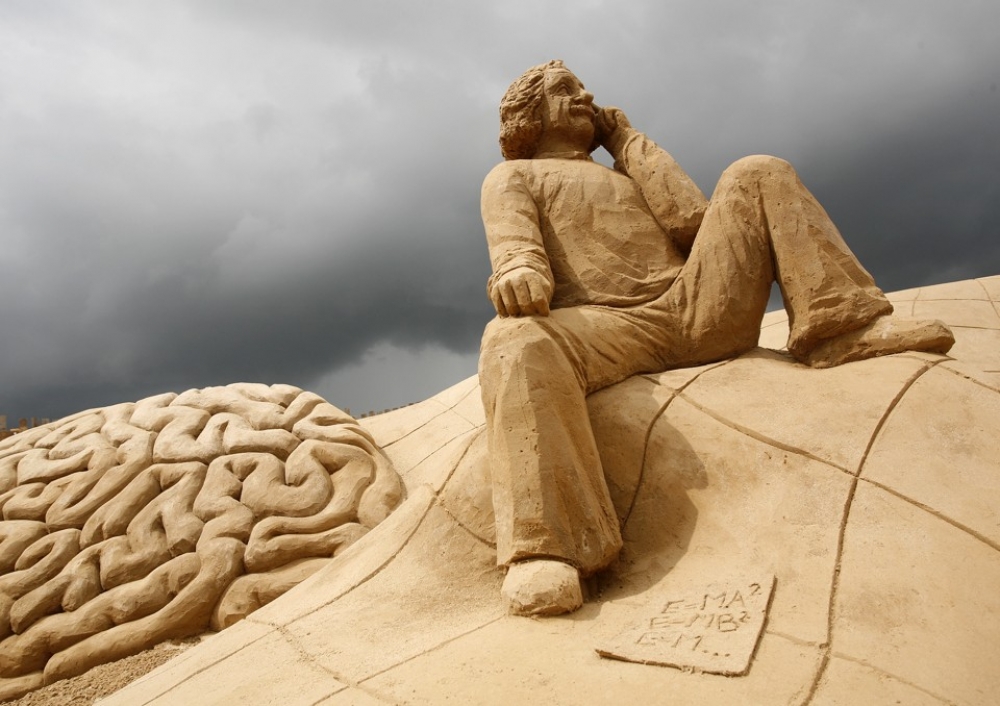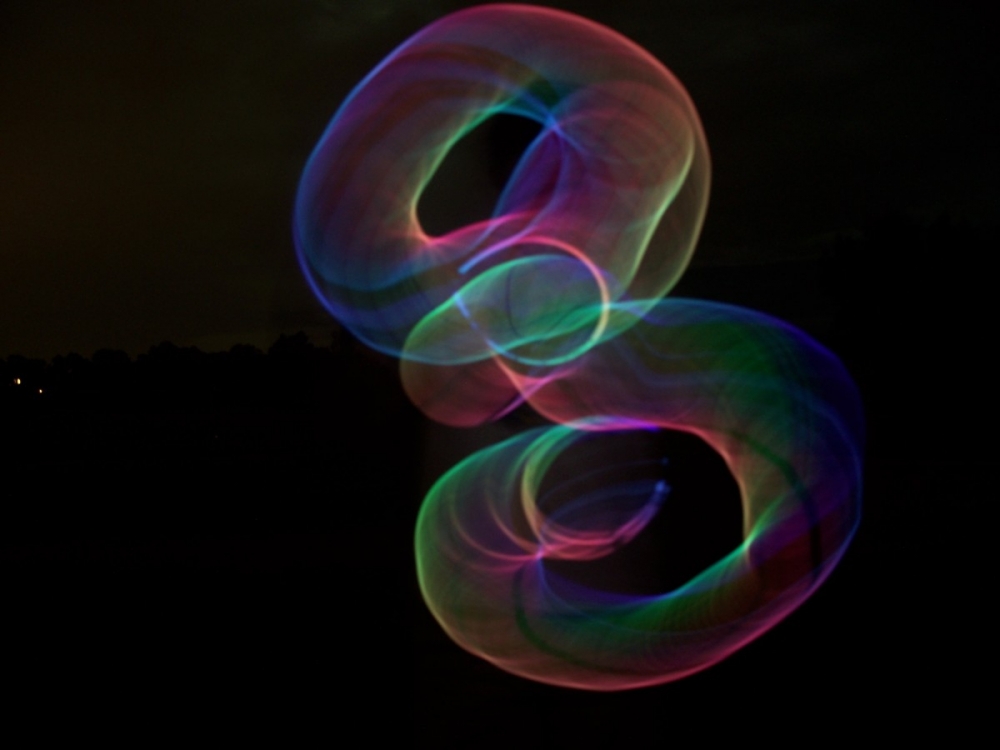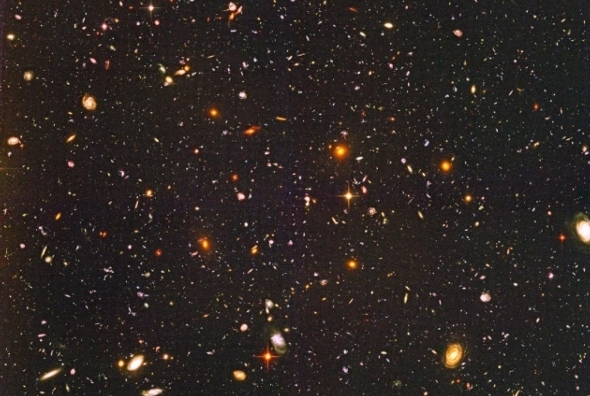Astronomers Observe Strange Quantum Distortion in Empty Space for the First Time Ever

Credits: ESO
IN BRIEF
- Vacuum birefringence has been observed by a team of scientists for the first time ever using the European Southern Observatory's (ESO) Very Large Telescope (VLT).
- The team observed neutron star RX J1856.5-375, which is about 400 light-years from Earth, with just visible light, pushing the limits of existing telescope technology.
A LITTLE LESS STRANGE
Vacuum birefringence is a weird quantum phenomenon that has only ever been observed on an atomic scale. It occurs when a neutron star is surrounded by a magnetic field so intense, it’s given rise to a region in empty space where matter randomly appears and vanishes.
This polarization of light in a vacuum due to strong magnetic fields was first thought to be possible in the 1930s by physicists Werner Heisenberg and Hans Heinrich Euler as a product of the theory of quantum electrodynamics (QED). The theory describes how light and matter interact.
Now, for the first time ever, this strange quantum effect has been observed by a team of scientists from INAF Milan (Italy) and from the University of Zielona Gora (Poland).
Using the European Southern Observatory’s (ESO) Very Large Telescope (VLT), a research team led by Roberto Mignani observed neutron star RX J1856.5-375, which is about 400 light-years from Earth.
See full text

 Image credit: flickr user Trailfan, via https://www.flickr.com/photos/7725050@N06/631503428.
Image credit: flickr user Trailfan, via https://www.flickr.com/photos/7725050@N06/631503428.